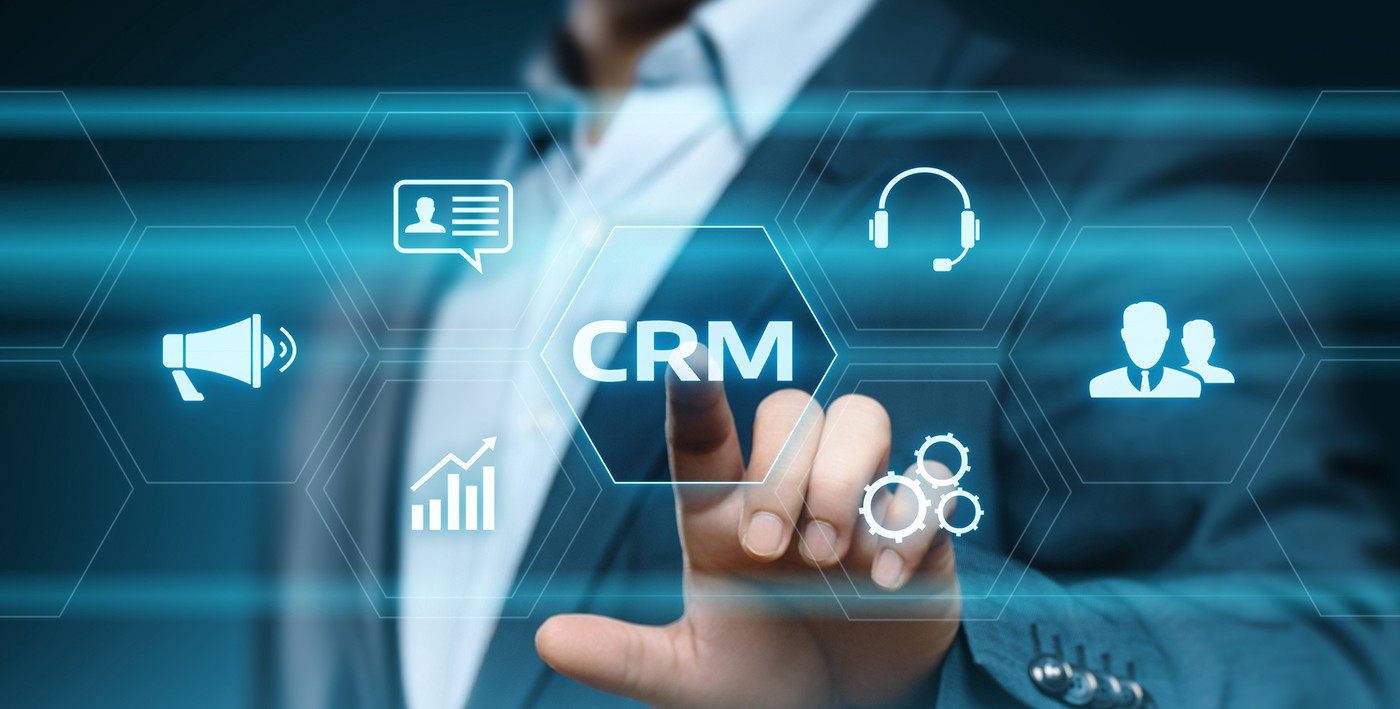Since we live in a highly digitalized environment where many processes are computerized, cybersecurity comes as a paramount concern for any business, regardless of its type, size, and domain. Since technology evolves, companies require large databases for storing information about consumers. Thus, the share of data stored on digital sources augments exponentially. The shift to digital processing and storage of customer data has led to the necessity to improve information protection algorithms and pay due attention to digital privacy and security.
The Risk of Cyberattacks

In modern reality, Customer Relationship Management (abbreviated as CRM) sets come as one of the brightest examples of user data vulnerability. Such systems are created to store valuable and highly sensitive data for businesses. These repositories are huge since they have to store a vast array of client data. Datasets encompass not only general client contacts but also other details such as individual consumer preferences, full purchase history, in-depth behavioral patterns, and other aspects of the interaction of businesses with the target audience. Thus, such systems frequently become targets of hackers and all sorts of cybercriminals.
In trying to get a client database, cybercriminals pursue multiple purposes. They are motivated by the opportunity to steal valuable personal data of consumers and use it for rights infringements, such as fraud, blackmail, or corporate espionage. The second common reason implies stealing CRM systems to harm the well-being and prospects of enterprises since cyberattacks may have a devastating effect on business processes.
An important remark: the likelihood of cyberattacks does not depend on the size of your business. The consequences of data breaches are equally harmful to any company, be it a local startup or an international corporation, an e-commerce giant or a healthcare institution. All kinds of enterprises are susceptible to the attacks of cybercriminals. Legal entanglements, money losses, and reputational damage comes as severe results of information breaches. Yet, what is more devastating, data theft undermines consumer trust in organizations, creating a gap in communication and interaction between companies and their target audiences.
In today’s interconnected world, the first thing to do to cope with the problem of cybersecurity is to admit the risk of becoming a target of scammers and acknowledge the severity of data theft consequences. In this case, the implementation of robust cybersecurity measures will be effective and highly targeted to prevent breaches and related problems.
Significance of CRM Info Protection
Safeguarding client data stands as one of the non-negotiable priorities in the modern business environment. For companies, the set of security measures is not just a routine checklist but also the bedrock of their reputations, success, prosperity in the market domain, and consumer trust.
- Reputation matters. A business’s reputation is the most precious asset for any enterprise, while client data confidentiality is the key aspect of creating this reputation. When interacting with companies, clients trust their personal information to organizations. Any data breach can lead to tarnishing the business’s image and loss of loyalty, while it will be challenging to retain it.
- Data privacy. This aspect of business relations between companies and customers goes beyond legal obligations. It implies respecting individuals’ expectations and rights and providing a commitment to protect client privacy. Sticking to transparent data processing in CRM systems increases customer loyalty and trust, showing the company’s high dedication to safeguarding client interest.
- Informational confidentiality. Comprehensible data security in CRM is a complex set of measures to protect information from all sorts of scamming. It is not only about compliance with standard requirements; a well-developed security algorithm implies proactive protection against all kinds of threats, including both hacker attacks and in-system mishaps. Such robust measures as cyber privacy training and encryption come as obligatory means of protection and access control. A high-quality data security mechanism encompasses solutions to prevent not only external threats but also internal failures caused by well-intentioned employees.
The modern business environment with its high competition dictates its conditions. The realization of CRM data security, the importance of its maintenance, and the consequences of breaches are strategic for any enterprise to be able to resist external threats. Mistreating these concepts will inevitably result in multiple troubles, such as legal disturbances, the loss of client trust and loyalty, and money losses. Cyber security is not about strictly sticking to rules; it is about respecting the rights of both sides of the business and creating a secure climate for cooperation. The development of a high-quality security system comes as a core requirement for consumer well-being and long-term business prospects.
Steps to Secure CRM Data
Following the next step allows businesses to develop high-level security in CRM systems and guarantee comprehensible safeguarding of user data:
- Enhance your IT infrastructure security. This approach implies the use of advanced technology and innovative solutions to keep the entire IT ecosystem (with hardware and furniture) highly protected from external impacts. By defending network equipment, servers, and other tools, you eliminate the risk of system malfunction and downtime.
- Cooperate with a trustworthy reliable CRM vendor. Multiple vendors offer their CRM systems. When selecting a suitable service provider, make sure to study their reputations, user feedback, and terms of cooperation. A comprehensible comparison of several vendors comes as an essential step in finding the best one in terms of security CRM.
- Implement 2FA (Two-factor authentication). Improve the security of your systems by adding this entry technology. The method implies the use of two different ways to prove your identity to get access to information. For example, an SMS code to a phone number or a security token are common options.
- Create strong passwords. The use of hard-to-break passwords is a key point of a confidential policy. Use extra symbols, create complicated passwords, as well as stimulate regular password updates to eliminate the risk of unauthorized access attempts.
- Make data backups. Regular backups of strategic information come as one of the vital precautions that help prevent info loss due to unforeseen circumstances, such as power outages or unfortunate breaches. If a company encrypts a backup, it will be able to recover quickly.
- Promote SSO (Single Sign-On). This solution implies simplifying user access without compromising privacy standards. For instance, access to all systems is provided after authentication.
- Arrange training lessons on cybersecurity. Knowledge is a powerful tool that helps prevent external threats. The acknowledgment of possible threats keeps the team fully armed. They are trained to react to attacks promptly, preventing data theft and system malfunction.
- Use monitoring mechanisms to identify suspicious activity. Implement tools that scan and monitor each access to the system and identify unusual patterns in system operation.
- Introduce Access Permission Strategies. Limit the circle of employees who have access to data by integrating granular access control mechanisms. Role-based access control (RBAC) helps minimize unauthorized access.
By implementing these strategies, businesses can enhance their security systems, make them more reliable, and prevent the negative influence of external hazards on datum and hardware.
CRM Security in the Financial Sector
The role of encrypted CRM systems in the financial sector is hard to overestimate. It features an even more significant impact. Insufficient security may result in great expenses and money losses. Thus, financial institutions are subject to the strictest regulatory requirements. Specialized tools and mechanisms like «MCA CRM» (Merchant Cash Advance CRM) are developed for such organizations to guarantee the highest level of protection.
The implementation and use of such solutions are beneficial due to strict compliance with industry-specific regulations, enhanced efficiency in managing client relationships, and improved customer service through streamlined processes and personalized interactions.
In a digital world where data comes as a strategic weapon, cybersecurity stands as not just a need but an imperative. Safeguarding client data not only helps build a high reputation and create a brand’s image but also protects businesses from money losses and ensures legal compliance. By being acknowledgeable in security issues, companies can fortify their CRM systems and build trusted relations with their target audiences.










